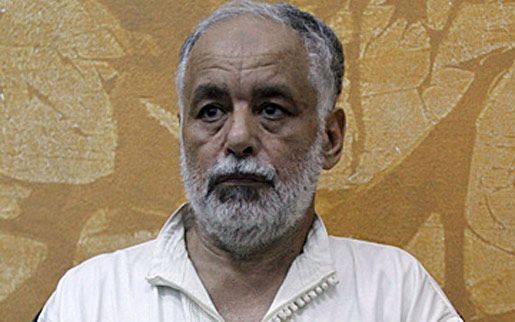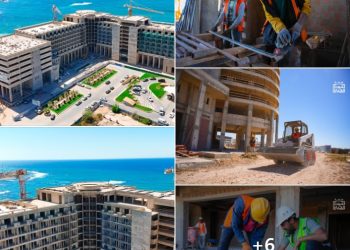By Houda Mzioudet.

Tripoli, 12 November 2012:
The trial of Baghdadi Al-Mahmoudi opened and was adjourned today in Tripoli, until 10 December, as the . . .[restrict]former premier’s lawyer argued the proceedings were flawed.
Mahmoudi should not be standing trial in Libya today following a “null and illegal” decision to extradite him from Tunisia in the first place, claimed his defence lawyer, Mabrouk Korshid, after the Libyan prosecutor general’s spokesman, Taha Baara, announced the court had adjourned the proceedings until next month.
Speaking to the Libya Herald, Korshid also complained about the state of his client, and queried reassurances from the Libyan authorities that Mahmoudi would receive a fair trial in Tripoli.
“We do not know where he is now. We have not had any news about him since his extradition in June 2012”, Korshid said on Sunday.
“There is no one in the Libyan authorities that can facilitate over visiting him. Even his lawyers in Libya cannot meet with him,” the lawyer claimed, adding that there “no guarantees for a fair trial” for Mahmoudi in a country still bedevilled by security problems.
Mahmoudi appeared in court in Tripoli today, for the first hearing in what is likely to be a lengthy trial. Amongst other things, he stands accused of ordering a mass rape in Zuara during the revolution. He is also accused of ordering a hospital manager to transfer dead bodies to buildings hit by NATO airstrikes, to infer that they had caused civilian casualties. He is, in addition, charged with misusing public funds.
The decision to extradite Mahmoudi to Libya back in June resulted in a major falling out between Tunisian Prime Minister Hamadi Jebali, who authorised the move, and President Moncef Marzouki who declared it “illegal” and “a clear violation of our country’s international commitments and those towards the UN.”
The Tunisian government defended the move, saying it was taken only after a Tunisian delegation had visited Tripoli and received adequate assurances that Mahmoudi would not be mistreated in custody and would receive a fair trial.
Nevertheless, the extradition was officially ruled to have been illegitimate by the Administrative Court of Tunis on 8 October, although the court’s reasoning on the matter has not been made public. Korshid himself says that he and his team were made aware of the decision, but have not received an official copy of the ruling from the court.
The lawyer added that the court’s decision was still in the consultative phase between the Tunisian Constituent Assembly and the Administrative Court of Tunis, but that it might it evolve to a final judicial decision by the court at a later stage.
Korshid explained to Libya Herald that there is a possibility of overturning the decision of the extradition of Mahmoudi, but that it will not affect the decision itself since it is impossible to get Mahmoudi back to Tunisia: “But the decision to arrest him in Tunisia and then extradite him to Libya is considered as “ a violation of the law” and “null and void”.
“Mahmoudi may face the death penalty in Libya and if that happens, that should hold Tunisian authorities responsible for his fate”, he further explained.
His other Tunisian lawyer, Mehdi Bouaouaja told the Libya Herald that the Tunisian Constituent Assembly requested the Administrative Court of Tunis to prove whether the decision of the extradition of al Mahmoudi was one of the prerogatives of the Tunisian president Marzouki or the Prime Minister Jebali.
Some Tunisian opposition political figures within the Tunisian Constituent Assembly and human rights organisations criticised the decision of Tunisian government to extradite Mahmoudi, on 24 June, arguing that this decision violated international laws, although Libyan authorities pledged to give him a fair trial. Mahmoudi was arrested in Tunisia in September last year, as he was trying to flee to Algeria.
His subsequent extradition has ignited a continuing political row between Tunisia’s president and prime minister, as to who had the ultimate power to authorise the move. President Marzouki revealed in a TV interview that he had given serious thought to resigning in protest and had actually written his resignation speech.
[/restrict]






